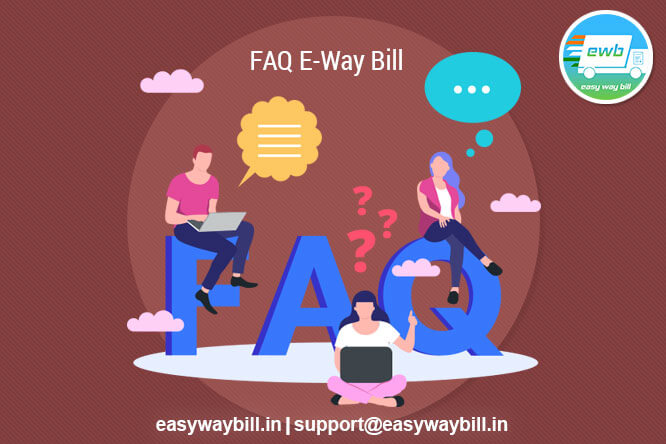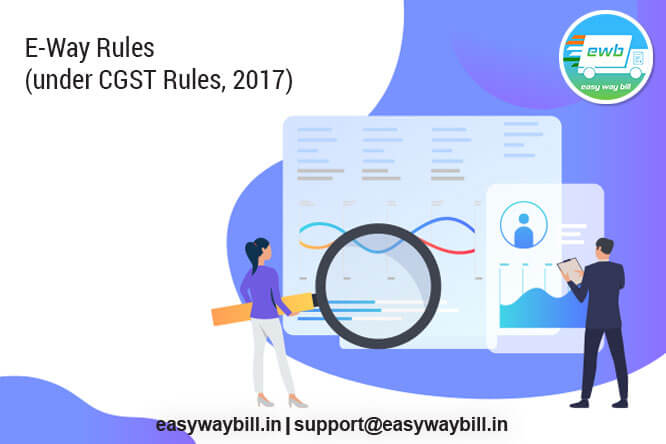 Login
Login
e-way bill operations viz. creation or cancellation of
e-way bills, auto-extension, regular alerts and more!
E-Way bill Management for
Transporters & Consigners

 Explore Logilocker
Explore Logilocker
safeguard them from fraudulent activities.
Digital Locker for
Transporters

The Official E-way Bill Mandate

The E-way Bill System enables GST registered individuals or enrolled transporters to electronically generate the E-way bill. This document must be carried by the person responsible for transportation when goods worth over a certain value (threshold amount) are moved, whether for supply purposes, non-supply reasons, or due to inward supply from an unregistered person.
The E-way Bill System was implemented on April 1, 2018, to facilitate both intra and inter-state movement of goods across the country. The primary objective of the E-way bill is to ensure seamless transportation of goods by reducing checkpoints and delays.
Additionally, it aims to curb tax evasion by providing a transparent system that enables tax authorities to track the movement of goods in real-time and verify tax compliance.
IRIS Logix is Growing, and we cannot be happier
Our community at IRIS Logix is thriving! Our success story is driven by satisfied customers and users of Logilocker and EasyWayBill Applications. Checkout our latest metrics here:
IRIS is a Government Approved GST Suvidha Provider (GSP)
IRIS Logix is a subsidiary of IRIS Business Services Limited. IRIS is an approved GST Suvidha Provider (GSP) and now now a Government authorized Invoice Registration Portal (IRP), connected with NIC for E-way Bill Management.

Your data is completely safe and secure

Get dedicated Customer Support

Have regular upgrades as per the EWB Mandate

Built-in Analytics and Dashboards

Backed by E-way Bill and GST Experts
About Us
IRIS Logix Solutions Private Limited is a subsidiary of IRIS Business Services Limited. We aim to leverage technology and strength of IRIS’ domain experience of working with GSTN and NIC to provide a simple, easy and scalable platform for transport operators to manage the entire life cycle of e-way bill operations.
IRIS Business Services Limited is a software products firm in the area of compliance, data and analytics with offerings across the information supply chain and across data reporting standards such as XBRL, JSON and so on.The Company is headquartered in Mumbai, India with International offices in United States, Singapore, United Kingdom, and the UAE.
We are one of the earliest GSPs appointed by GSTN. Our clients include Enterprises, large and small; Business Registries, Central Banks, Stock Exchanges, and the Government. The company’s products are available in some 30+ countries across 5 continents.

Our Team
The IRIS leadership team is comprised of accomplished professionals with
extensive experience in financial content management, technology,
marketing, accounting and entrepreneurship.
Why Choose IRIS Logix?

Recognized and Trusted Company

IRIS is a Govt. Authorized IRP & GSP

Cloud-Based Solution

User-friendly UI

Reliable Customer Service

Future-Proof with Timely Upgrades

Client Testimonials
Faq
All the registered persons under GST shall also register on the portal of e-way bill namely: http://gst.kar.nic.in/ewaybill using their GSTIN. Once GSTIN is entered, the system sends the OTP to his registered mobile number and after authenticating the same, the system enables him to generate his/her username and password for the eway bill system. After the generation of the username and password of his choice, he/she may proceed to make entries to generate e-way bill.
How to Generate Eway Bill? Part-A and Part-BYes. Validity of the e-way bill or consolidated e-way bill depends upon the distance the goods have to be transported. The validity is one day upto 100 km and for every 100 km or part thereafter it is one additional day.
TRANSIN or Transporter ID is a 15-digit distinctive code generated by the E-Way Bill system specifically for transporters who haven’t registered themselves under GST. Serving a role similar to GSTIN, the Transport ID is allocated by the GST portal once the transporter enrolls on the e-way bill portal, facilitating the identification of goods being transported.
Every registered person, who causes movement of goods, needs to generate the e-way bill. If the registered person is unable to generate the e-way bill, the transporter who transports the goods can generate the e-way bill on behalf of his/her client. If the movement is caused by an unregistered person, he may at his option generate the eway bill.
Yes. One can transport the goods through different modes of transportation – Road, Rail, Air, Ship. However, always e-way bill needs to be updated with the latest mode of transportation or conveyance number accordingly. That is, at any point of time, the details of conveyance specified in the e-way bill on the portal should match with the details of conveyance through which goods are actually being transported
Latest Blog

Eway bill FAQs
Read More

E-Way bill Rules (under CGST Rules, 2017): Generation of e-way Bill for Movement of Goods
Read More
Become shippers’ preferred vendor today
Have any questions? Get in Touch with Us





